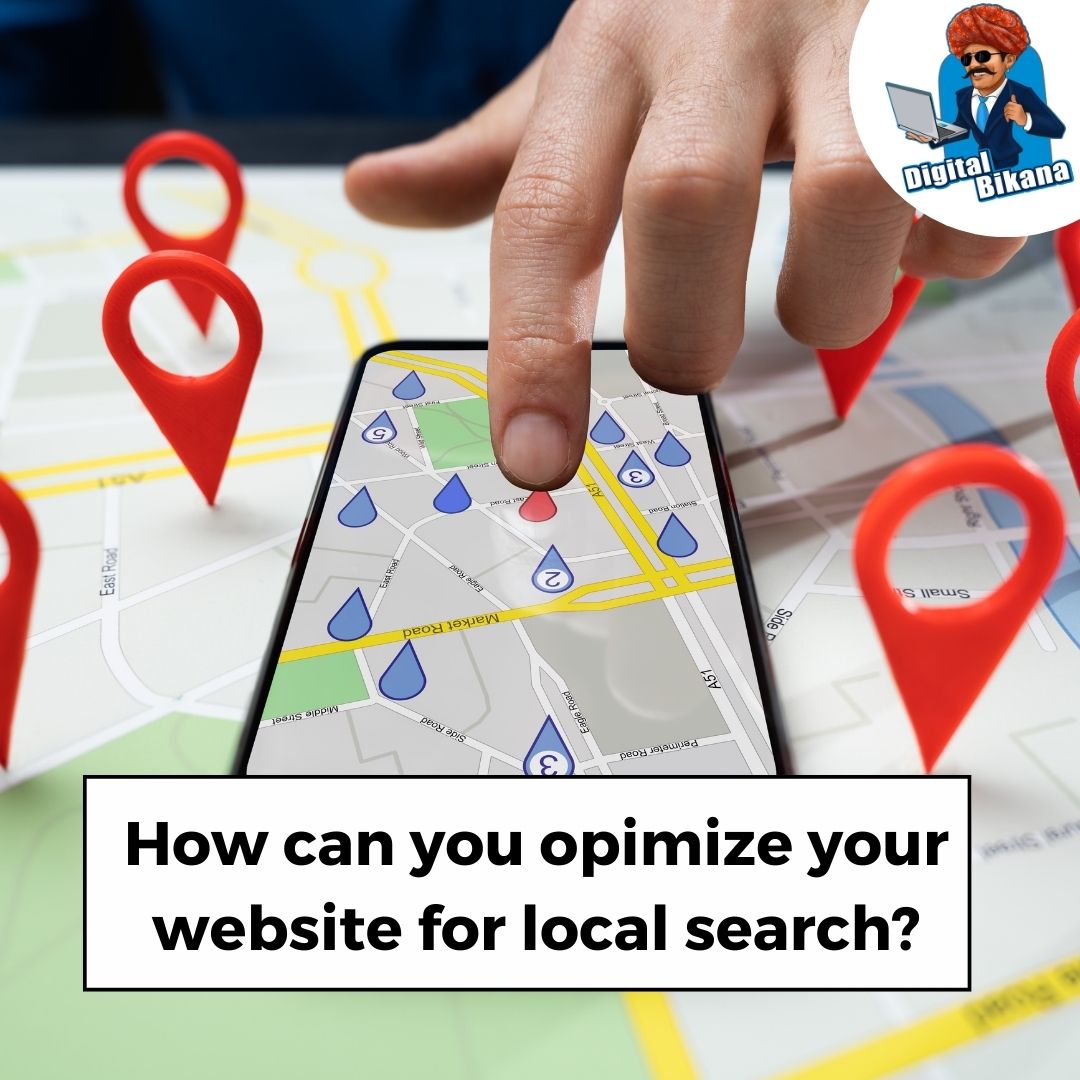How can you Optimize Your Website for Local Search?
In this article we are going to talk about How can you optimize your website for local search? In an era where consumers increasingly rely on search engines to find local businesses and services, optimizing your website for local search has become crucial. Local search engine optimization (SEO) allows you to improve your visibility in location-based search results and attract potential customers in your area.
How can you Optimize Your Website for Local Search?
In this article, we will explore the key strategies and best practices to effectively optimize your website for local search.
1. Claim and Optimize Your Google My Business Listing
A Google My Business (GMB) listing is essential for local search optimization. Claim and verify your business on GMB to ensure accurate and up-to-date information is displayed when users search for your business. Optimize your listing by providing detailed business information, including your business name, address, phone number (NAP), hours of operation, and website URL. Ensure that your NAP information is consistent across your website, directories, and online listings.
2. Optimize On-Page SEO Elements
Optimize your website’s on-page elements to signal to search engines that your business is relevant to local searches. Incorporate location-specific keywords naturally throughout your website’s content, meta tags, headings, and image alt tags. Include your business address in the footer or on a dedicated “Contact” page. Embed a Google Map on your website to enhance the local relevance of your business.
Read Also: What is the Role of Alt Tags in Image Optimization for SEO?
3. Create Location-Specific Landing Pages
If you have multiple locations or serve different geographic areas, create location-specific landing pages. Each landing page should have unique content tailored to that specific location, including relevant keywords, testimonials from local customers, and information about local events or partnerships. This strategy helps search engines understand the geographic focus of each page and improves your chances of appearing in location-based searches.

4. Generate Positive Reviews and Ratings
Online reviews and ratings have a significant impact on local search rankings and consumer trust. Encourage happy customers to leave reviews on popular platforms like Google, Yelp, or industry-specific review sites. Respond to all reviews, whether positive or negative, to demonstrate your commitment to customer feedback. Positive reviews not only enhance your reputation but also improve your search visibility, as search engines often consider reviews as a ranking factor.
5. Optimize for Local Keywords and Long-Tail Queries
Research and optimize your website for relevant local keywords and long-tail queries. Use keyword research tools to identify location-specific keywords and phrases that your target audience is likely to use when searching for local businesses. Incorporate these keywords naturally into your website’s content, headings, and meta tags. Focus on long-tail queries that reflect specific services or products in combination with the location to attract highly targeted local traffic.
Read Also: How to Optimize your Website for Long Tail Keywords?
6. Develop High-Quality Local Backlinks
Building high-quality backlinks from local sources is essential for local SEO. Seek opportunities to collaborate with local businesses, organizations, or influencers to generate backlinks. This can include guest blogging, sponsoring local events or charities, or participating in local industry directories. Engage with the local community through partnerships and collaborations to increase the visibility of your website in local search results.
7. Ensure Mobile-Friendliness and Fast Loading Speed
With the rise of mobile usage, optimizing your website for mobile devices is critical for local search success. Make sure your website is mobile-friendly and delivers a smooth user experience across various devices and screen sizes. Additionally, optimize your website’s loading speed as it directly impacts user satisfaction and search rankings. To improve your website’s speed, compress images, reduce code size, and use caching techniques.
Read Also: How to improve your website’s loading speed for better SEO?
8. Leverage Online Directories and Local Citations
Submit your business information to online directories and local citations to improve your local search visibility. Ensure consistent NAP information across all directories, including your website, GMB listing, social media profiles, and industry-specific directories. Popular online directories to consider include Yelp, Yellow Pages, Bing Places, and TripAdvisor.

9. Implement Schema Markup for Local Business
Implementing schema markup using structured data helps search engines understand your business information in a more structured and contextual manner. Use local business schema markup to provide specific details such as your business address, phone number, business hours, customer reviews, and ratings. Schema markup enhances the visibility and appearance of your business in search results, increasing your chances of attracting local customers.
Read Also: What is the Role of Schema Markup in Seo?
10. Track and Analyze Performance
Regularly monitor and analyze the performance of your local SEO efforts using tools like Google Analytics and Google Search Console. Track key metrics such as organic traffic, rankings, conversion rates, and engagement for location-based queries. Analyze the data to identify trends, areas for improvement, and opportunities for further optimization. Use the insights gained to refine your local SEO strategy and maximize your online visibility in local searches.
You can also checkout this digital marketing institute to learn digital marketing course by enrolling in our course Or Contact Digital Bikana on +91-8949483728
Conclusion:
Optimizing your website for local search is essential for businesses targeting a specific geographic area. By claiming and optimizing your Google My Business listing, incorporating local keywords, generating positive reviews, and building local citations and backlinks, you can improve your visibility in local search results. Ensure mobile-friendliness, provide valuable local content, and leverage structured data to enhance your local SEO efforts. Continuously track and analyze performance to refine your strategy and stay ahead in the local search landscape. With effective local SEO, you can attract and convert local customers, ultimately driving the success of your business. So, Now I hope you have understood about How can you Optimize Your Website for Local Search?

